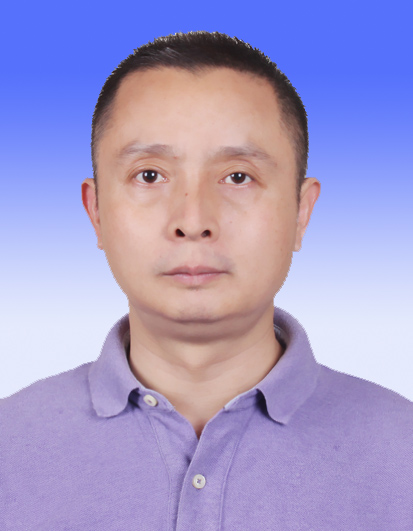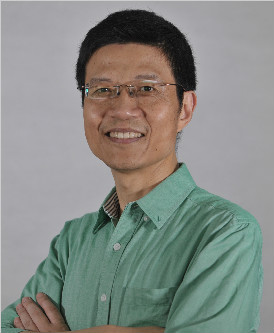
| Professor Jiangtao QiuSouthwestern University of Finance and Economics, ChinaDr. Jiangtao Qiu is a professor and doctoral supervisor at the School of Computing and AI at Southwestern University of Finance and Economics. His research interests include data mining, business intelligence, and FinTech. In the last ten years, he has published more than four papers; presided over one natural science foundation in China; conducted two ministry of education research projects; as well as edited three textbooks. Speech Title: Business Intelligence: A perspective of Users in E-commerce Abstract: The term "business intelligence" can be traced back to the 1980s; however, it was not until Microsoft introduced its OLAP Service product in 2000 that "business intelligence" started gaining widespread attention in both industry and academia. During this period, business intelligence primarily focused on multidimensional data analysis and automated reporting technology within data warehouses. Over the course of more than two decades of evolution and development, particularly with the rise of e-commerce and continuous advancements in artificial intelligence technology, the concept and research scope of business intelligence have significantly expanded beyond its initial scope of data analysis. This report takes an e-commerce user perspective to provide a comprehensive and thorough review of the theoretical framework underlying business intelligence. It integrates recent significant research findings from deep learning technology in this field while systematically examining the progress made in academic research on business intelligence from an e-commerce user standpoint. Furthermore, it offers prospective discussions on future trends and directions for its development. |
| Professor Tong LiShenzhen University, ChinaDr. Tong Li, male, professor of the College of Management, the executive director of Institute of Mobile-Internet-Things Industrialization of Shenzhen University. An expert in the database of experts in philosophy and social sciences of Guangdong Province, an expert of the Shenzhen Science and Technology Innovation Commission. A bachelor's degree in mathematics from Hubei Normal University, a master's degree and a PhD degree in system engineering from Huazhong University of Science and Technology. Dr. Li once taught at Wuhan University of Technology and Huazhong University of Science and Technology. As a science and technology envoy, participated in the operation and research and development of enterprises, and once served as the Director of the research and development center of Compaq (HP) Scipower E-commerce, the Assistant to the chairman of Scipower Electronics and the Director of the the Emoticon Recognition Innovation Application Joint Laboratory of National Supercomputing Shenzhen Center & Shenzhen Zhihuilin Network Technology Co., Ltd. Speech Title: Mortal Computation Abstract: Mortal Computation refers to a novel computational paradigm proposed by Hinton. It emphasizes a closer integration between software and hardware, drawing inspiration from the characteristics and principles of biological intelligence. The goal of Mortal Computation is to address energy consumption issues by mimicking the energy-efficient information processing capabilities of biological systems. The idea of Mortal Computation is introduced in this keynote. The possibilities and challenges of its realization will be discussed. |
| Professor Yuxin MaoZhejiang Gongshang University, ChinaDr. Mao Yuxin received his Ph.D. from Zhejiang University, China, in 2008. He is currently a professor at the School of Management and E-Business, Zhejiang Gongshang University. His research interests encompass text mining in e-commerce, online consumer behavior, and social network analysis. Dr. Mao is a senior member of the China Computer Society, a director of the Hangzhou Mobile Internet Technology Society, and a member of the China Logistics Society. He has served as a visiting scholar at the Polytechnic University of Valencia and Hong Kong Baptist University. Dr. Mao has been recognized as a Third-Level Talent under the 151 Talent Program of Zhejiang Province and was selected for the Youth Science and Technology Talent Cultivation Project of Hangzhou City. In addition to his academic research, Dr. Mao provides advisory services on e-commerce and the digital economy to local government departments and enterprises. Speech Title: Rethinking the Consumer Review Mining based on e-Commerce Platforms from the Perspective of LLM Fine-Tuning Abstract: With the rapid growth of e-commerce, a vast number of consumer reviews are generated daily on various e-commerce platforms. Natural language processing (NLP) and text mining techniques can be employed to analyze these reviews, extract valuable insights, and inform e-commerce marketing strategies. The emergence and widespread adoption of large language models (LLMs) offer a new tool and research perspective for this task. By fine-tuning existing LLMs, we can mine e-commerce consumer reviews and compare the performance of this approach with traditional text mining methods. Additionally, we will address the limitations of LLMs in the context of consumer review mining and propose potential solutions to mitigate these challenges. |
| Associate Professor Weishi ShaoNanjing Normal University, ChinaWeishi Shao, Associate Professor, Master Tutor. He received his master's degree in computer software and Theory from Lanzhou University in 2015, and his Doctor's degree in computer science and technology from Nanjing University of Aeronautics and Astronautics in 2018. In 2021, he entered the postdoctoral mobile Station of Software Engineering of Nanjing University of Aeronautics and Astronautics to do research work. He is currently the director of the Network Department of the School of Computer and Electronic Information/School of Artificial Intelligence, Nanjing Normal University, a member of the Intelligent Simulation Optimization and Scheduling Committee of the Chinese Simulation Society, a member of the Chinese Society for Artificial Intelligence and a member of the Chinese Computer Society. He is mainly engaged in the research of intelligent optimization algorithm and production scheduling optimization. He has presided over and participated in the National Nature Foundation Youth Project, Jiangsu Provincial Basic Research Program Youth Project, China Postdoctoral Foundation Project, Jiangsu Provincial Universities Natural Science Project/major project, Jiangsu Provincial Academic degree Graduate Innovation Program, Ministry of Education Humanities and Social Science project, and the Key Laboratory of Large-scale Complex System Numerical Simulation of Ministry of Education. He has published more than 30 papers in IEEE TASE, IEEE TETCI, IEEE TEVC KBS, COR, AOSC, ESWA, SWEVO, APIN and other international authoritative SCI journals in the field of artificial intelligence, operations optimization and automation. He won the third Prize of Jiangsu Provincial University Science and Technology Research Achievement Award, the second/third Prize of Innovation and Entrepreneurship of the Ministry of Industry and Information Technology, the fifth Innovation Award of Nanjing University of Aeronautics and Astronautics, the excellent doctoral thesis of Jiangsu Computer Society and Nanjing University of Aeronautics and Astronautics, and the annual Scientific Influence list of the world's top 2% top scientists in 2022/2023. Speech Title: Learning-driven distributed flexible job shop scheduling optimization Abstract: With the deepening of economic globalization, in order to meet the complex and changing needs of local and international markets, manufacturing enterprises have shifted from single-workshop centralized production to multi-workshop distributed production. The diversified production environment undoubtedly brings great challenges to production resource scheduling. Distributed shop scheduling directly affects the benefits and competitiveness of multi-shop production enterprises. Efficient distributed shop scheduling methods and technologies are the key to achieve optimal allocation of manufacturing resources, cost reduction and efficiency increase, energy saving and emission reduction. However, the complex distributed shop environment poses a great challenge to the solution of scheduling problems. With the rapid development of artificial intelligence technologies such as machine learning, deep learning, reinforcement learning and transfer learning, learning-driven intelligent optimization algorithms begin to emerge. This report will introduce learning-driven intelligent optimization methods for distributed flexible job-shop scheduling from the aspects of problem analysis and algorithm design. |



